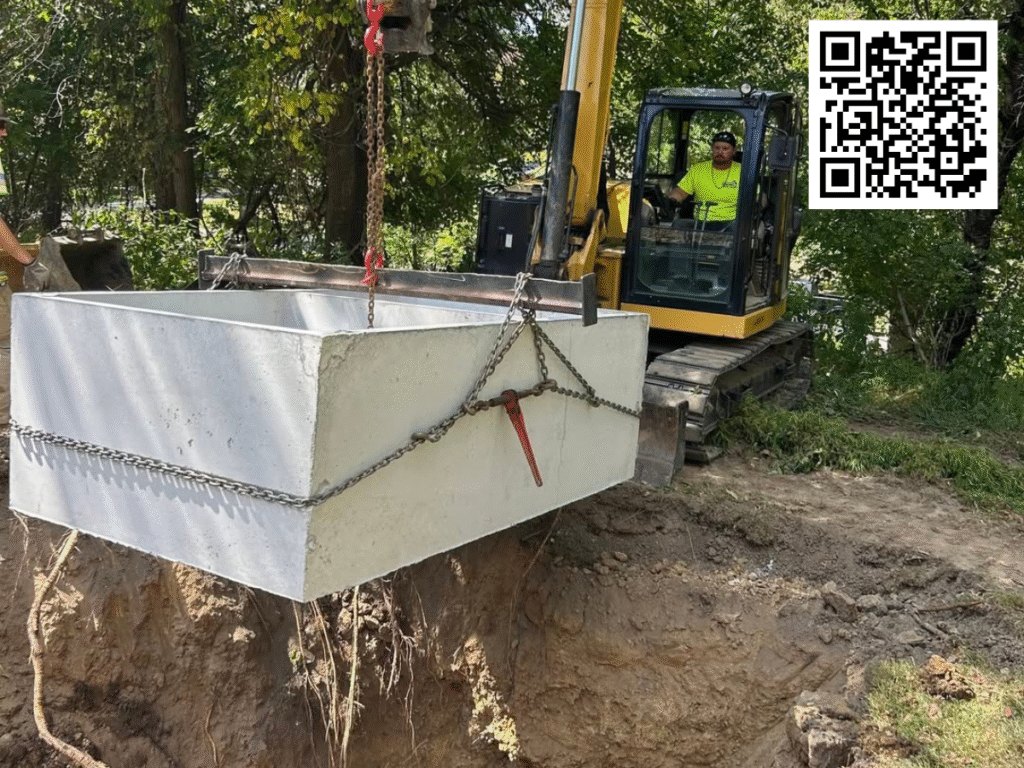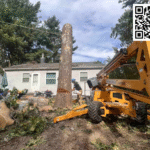You’ll need an excavation permit in Pittsburgh for major digging, grading, or work near public streets. The most important first step is calling PA One Call at 811. This service marks underground utility lines before you dig.
This guide explains the rules you should know for your excavation projects. We’ll cover permit types, safety steps, and inspection requirements.
When Do You Need an Excavation Permit in Pittsburgh?
You will need a permit usually when working in streets, alleys, sidewalks, and performing major grading. Understanding the rules is important to stay compliant and avoid fines.
Work in Streets, Alleys, or Sidewalks
If your project touches public property, you need an Opening Permit. The Department of Mobility and Infrastructure handles these requests. This applies to driveway installations, utility repairs, and sidewalk work. Basically, anything involving public streets or alleys needs city approval.
Major Grading or Land Disturbance Projects
You’ll need a Land Operations Permit when starting a large project. The city requires this when you are moving more than 50 cubic yards. Projects on steep slopes also fall under this category. Call the city before starting any major grading work.
Encroachments into Public Space
Sometimes your project might extend beyond your property line. An Encroachment Permit covers these situations. This permit applies when structures or digging reaches into public areas.
Residential or Construction-Related Excavation
The Department of Permits, Licenses, and Inspections oversees projects like adding or installing new decks. They handle permits for foundation work and similar residential construction. Check with them before your project starts.
What Are Different Types of Permits for Excavation?
You may need multiple permits for your excavation projects in Pittsburgh based on your location, project size, and goal. The table below summarizes them:
| Permit Type | When Needed | Who Issues It |
| Excavation or Grading | Significant earth movement or land reshaping | Local city or county government |
| Utility Clearance | Any digging near underground utilities | Utility companies or Call 811 |
| Environmental Protection | Work near wetlands, water bodies, or protected areas | EPA or local environmental agencies |
| Stormwater Management | Projects affecting water runoff or drainage | Local water boards or public works |
| Building Permit | Construction-related excavation (foundations, basements) | Municipal building departments |
| Erosion Control | Digging on slopes or near streams and rivers | Local environmental or public works |
How to Determine the Correct Permit Type for Your Project?
Different departments handle different types of work. Here’s how to figure out which permit type you need.
- Figure out if DOMI or PLI handles it
- Check if your work involves grading or construction
- See if you’re working in the right-of-way
- Look into your property’s zoning requirements first
- Verify if you’re in a floodplain area
- Search for “excavating near me” for professional help
- Contact the appropriate department with your questions
How to Apply Online to Get an Excavation Permit?
Pittsburgh makes it easy to apply for permits online. The OneStopPGH portal handles most permit applications from home.
What Documents Will I Need to Submit for Excavation Permits?
- Detailed description of your project work
- Site plans showing the excavation area
- Current photos of your property
- Your planned start and finish dates
What Is the Fee for Excavation Permits and How Long Does It Take?
Most excavation permits cost between $50 and $200. The exact fee depends on your project’s size and complexity. Larger grading projects or encroachment permits may cost more. Processing usually takes one to two weeks after submission.
What Safety Rules Do You Need to Follow After the Permit?
Having your permit in hand doesn’t finish the job. You also need to follow the following safety rules during the work.
- Permit Display: Keep your permit posted where inspectors can easily find it during unannounced site visits. This simple step proves you’re following all local regulations.
- Safety Barriers: Set up fencing or cones around open trenches to keep people and pets safe. These barriers help prevent accidents and protect you from liability.
- Traffic Control: Submit a traffic plan to the city if you’re blocking roads or parking spots. Remember to post No Parking signs two days before work begins.
- Final Inspection: Request a city inspector to check your finished excavation before wrapping up the project. This inspection confirms everything meets the required code standards.
- Wait for Approval: Don’t fill trenches or add landscaping until the inspector gives you the green light. Starting too soon could mean tearing everything out and starting over.
Can Professional Excavation Service Help Me with Permits?
Yes, working with an experienced excavator makes the permit process much easier. They handle OneStopPGH applications and coordinate with city departments for you. Professional contractors understand slope stabilization, erosion control, soil conditions, regulations, and local safety standards.
This knowledge prevents costly delays, fines, and code violations. Their expertise saves you time and protects your investment.




